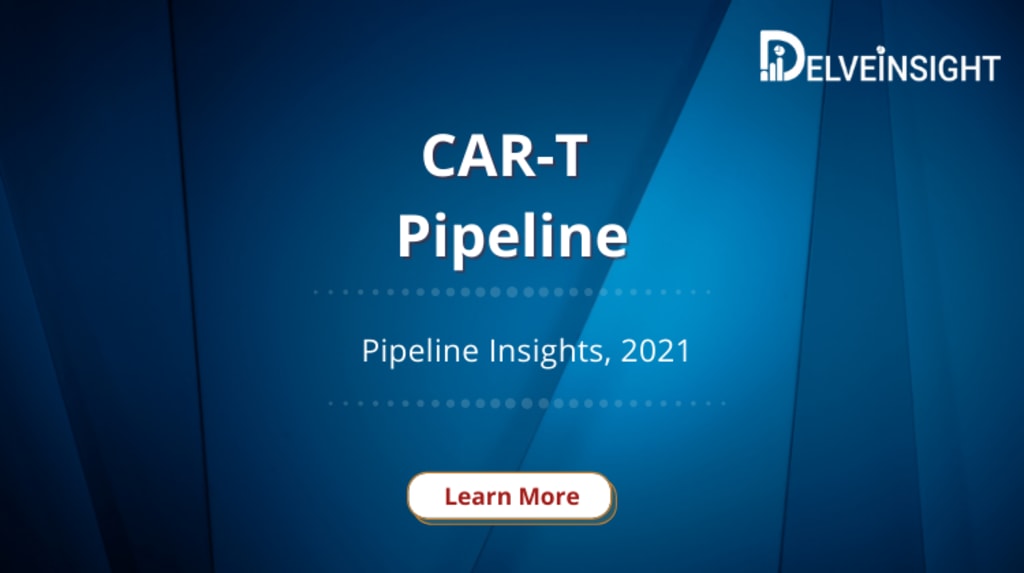What is CAR-T?
healthcare business consulting services

What is CAR-T Pipeline?
CAR-T is a type of treatment in which a patient's T cells (a type of immune system cell) are changed in the laboratory so they will attack cancer cells. T cells are taken from a patient’s blood. Then the gene for a special receptor that binds to a certain protein on the patient’s cancer cells is added to the T cells in the laboratory. The special receptor is called a chimeric antigen receptor (CAR). Large numbers of the CAR T cells are grown in the laboratory and given to the patient by infusion. CAR T-cell therapy is used to treat certain blood cancers, and it is being studied in the treatment of other types of cancer. Also called chimeric antigen receptor T-cell therapy.
What is Potential Mechanisms of CAR-T Cell-Mediated Toxicity?
Significant progress has been made in the field of cancer immunotherapy, and CAR-T cells have shown outstanding efficacy in clinical trials. As with all technologies, CAR-T technologies also need to go through a long process of development, and CAR-T cell therapy has related acute and chronic toxicities that have become a roadblock on the developmental path. If these setbacks are not overcome, it will be difficult to make a more significant breakthrough.
What is Cytokine Release Syndrome?
Cytokine release syndrome (CRS) is the most common toxic side effect in CAR-T cell therapy. CRS is a systemic inflammatory response caused by the significant increase in cytokines accompanied by the rapid in vivo activation and proliferation of CAR-T Clinical Trails cells, usually occurring within a few days after the first infusion. CRS is a clinical condition with mild symptoms of fever, fatigue, headache, rash, joint pain, and myalgia. Severe CRS cases are characterized by tachycardia, hypotension, and high fever. Mild to moderate CRS is usually self-limiting and can be managed through close observation and supportive care. Severe CRS must be treated with tocilizumab or steroids alone for intensive treatment.
Advances in Research of CAR-T Cell Therapy for Solid Tumors
Although early CAR-T cell trials of solid tumors did not show the same success as observed in leukemia trials, a better understanding of the multiple barriers seen in solid tumors could promote the design of clinical trials for CAR-T cells. In this early stage of clinical development, CAR-T cells offer much hope. The ability of genetic manipulation techniques to modify CAR-T cells provides almost unlimited opportunities for other changes and improvements, thus providing a strong desire for future success.
What is Global Landscape of CAR-T Cell Therapy?
At present, CAR-T cells are widely used in cellular immunotherapy for various tumors. According to statistics, more than 300 clinical trials of CAR-T cell therapies have been approved by many national drug regulatory agencies, including the FDA of the United States. Statistical data from these clinical trials show that although the effects of various clinical trials vary due to the use of different sources and the preparation techniques of CARs and T cells, as well as differences in pretreatment and combinations of drugs, overall, CAR-T cells are effective in treating tumors with an effective rate of 30% to 70% or even more than 90%. For example, the complete remission rate for r/r ALL treated with the Novartis drug CTL0l9, which the FDA has approved, is 93%. Perhaps CAR-T cell therapy will ultimately remedy the fate of human cancer.
What are CAR-T Emerging Drugs Chapters?
This segment of the CAR-T report encloses its detailed analysis of various drugs in different stages of clinical development, including phase II, I, preclinical and Discovery. It also helps to understand clinical trial details, expressive pharmacological action, agreements and collaborations, and the latest news and press releases.
What are the CAR-T Emerging Drugs?
• MB-101: Mustang Bio
MB-101 is an IL13Rα2-specific CAR T-cell therapy being developed by Mustang (a subsidiary of Fortress Biotech) in the Phase I stage for the treatment of patients with recurrent/refractory malignant glioma. IL13Rα2 is an attractive target for CAR T therapy as it has limited expression in normal tissue but is over-expressed on the surface of the majority of GBM. CAR T-cells are designed to express a membrane-tethered IL-13 receptor ligand (IL-13) incorporating a single point mutation that provides high affinity for IL13Rα2 and reduces binding to IL13Rα1 to reduce healthy tissue targeting. The company is developing MB-101 in collaboration with the City of Hope. Both the companies will assess the T-cell persistence and determine the potential immunogenicity of the cells to determine a recommended Phase II dose.
• JNJ-68284528: Janssen Research & Development, LLC
JNJ-68284528 is an autologous chimeric antigen receptor T-cell (CAR-T) therapy that targets B-cell maturation antigen (BCMA), a molecule expressed on the surface of mature B lymphocytes and malignant plasma cells. Janssen is conducting a phase 3 randomized study comparing JNJ-68284528, a Chimeric Antigen Receptor T Cell (CAR-T) Therapy directed against BCMA, versus Pomalidomide, Bortezomib and Dexamethasone (PVd) or Daratumumab, Pomalidomide and Dexamethasone (DPd) in subjects with relapsed and Lenalidomide-Refractory Multiple Myeloma.
The primary hypothesis for this study is that JNJ-68284528 will significantly improve progression free survival (PFS) compared with standard therapy (PVd or DPd), in participants who have previously received 1 to 3 prior line(s) of therapy, that included a proteasome inhibitor (PI) and an immunomodulatory drug (IMiD) and who are refractory to lenalidomide. This study will be conducted in 3 phases: Screening (up to 28 days before randomization), Treatment, and Follow-Up. Assessment like patient-reported outcome(s) (PROs) assessments, electrocardiogram (ECG), vital signs, pharmacokinetic will be performed during the study. Safety evaluations will include review of adverse events, laboratory test results, vital sign measurements, physical examination findings, and assessments of cardiac function, Immune Effector Cell-associated Encephalopathy (only for Arm B) and Eastern Cooperative Oncology Group performance status. Safety data will be periodically reviewed by an Independent Data Monitoring Committee (IDMC). The duration of the study is approximately 6 years.
• MB-CART20.1: Miltenyi Biomedicine GmbH
A preparation of autologous T lymphocytes that have been genetically modified to express a chimeric antigen receptor (CAR) targeting the tumor-associated antigen (TAA) CD20 (cluster of differentiation 20), and CD4/CD8 enriched, with potential immunostimulating and antineoplastic activities. Upon administration, MB-CART20.1 specifically recognize and kill CD20-expressing tumor cells. The CD20 antigen, a non-glycosylated cell surface phosphoprotein, is a B-cell specific cell surface antigen expressed in B-cell lineage malignancies and certain melanoma cell subpopulations.
About the Creator
haven smith
https://www.delveinsight.com/






Comments
There are no comments for this story
Be the first to respond and start the conversation.